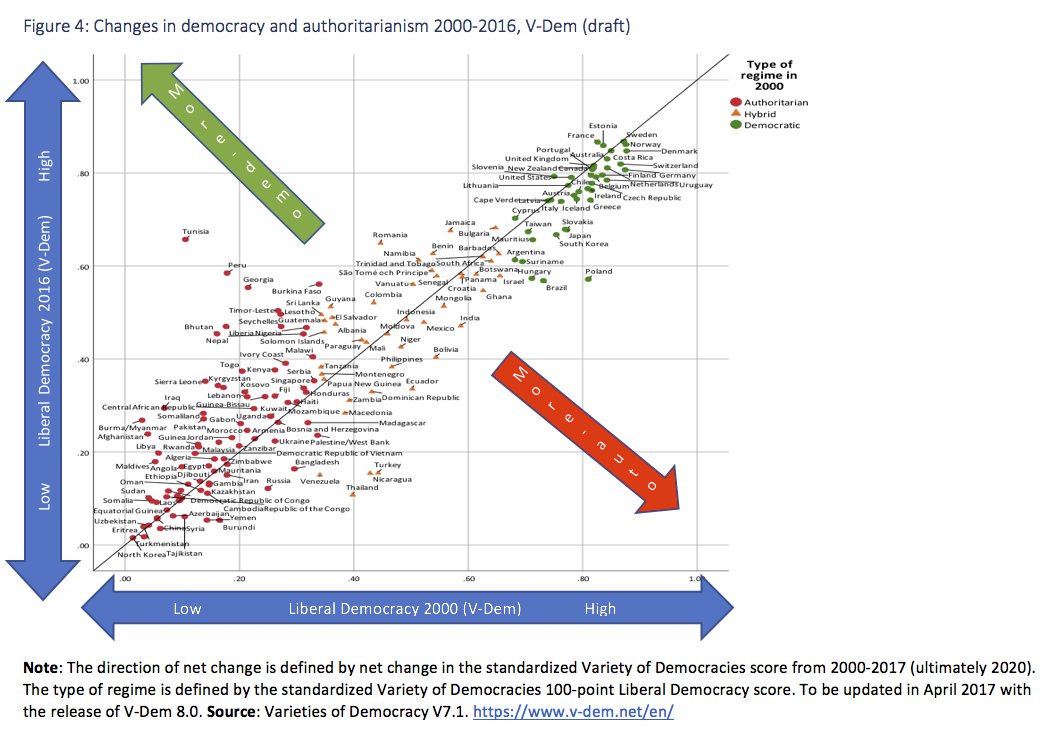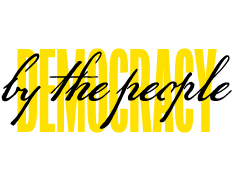
V-Dem
Authoritarian resurgence is puzzling intellectually because the dominant theoretical paradigm during the past four decades has focused on explaining the drivers of democratic advance, not retreat, says a leading analyst.
The most comprehensive and rigorous data from the Varieties of Democracy (V-Dem – above), an academic project devoted to measuring democracy, demonstrates that the quality of liberal democracy has eroded worldwide during the past decade, although the map is patchy, notes Pippa Norris, the Paul F. McGuire Lecturer in Comparative Politics at Harvard University.
My new book, Cultural Backlash: Trump, Brexit, and Authoritarian Populism, written with the University of Michigan’s Ron Inglehart, emphasizes that the root causes of democratic backsliding exist across a wide range of post-industrial societies, threatening liberal democratic norms and practices. Democracies are at risk from the collision of several forces, like a perfect  storm, she adds:
storm, she adds:
- the growing politics of fear, with a backlash against liberal democracy fed by perceived threats to traditional cultural values and social identities;
- the rise of authoritarian-populist parties, leaders, media, and social movements, fueled by, and reinforcing, these cultural tensions in mass society;
- the weakness of constitutional safeguards at home, which lack resilience and effective enforcement mechanisms to resist malpractice by strongman leaders;
- and finally, broad changes in international relations arising from the end of the American century and the decline of Western power, rising nationalist challenges to the rules-based world order, the agencies of global governance and multilateral cooperation, and the growing role of China and a resurgent Russia.
 Democratic backsliding (meaning the state-led debilitation or elimination of the political institutions sustaining an existing democracy) has changed dramatically since the Cold War, according to Nancy Bermeo. Open-ended coups d’état, executive coups, and blatant election-day vote fraud are declining while promissory coups, executive aggrandizement and strategic electoral manipulation and harassment are increasing, she wrote for the NED’s Journal of Democracy:
Democratic backsliding (meaning the state-led debilitation or elimination of the political institutions sustaining an existing democracy) has changed dramatically since the Cold War, according to Nancy Bermeo. Open-ended coups d’état, executive coups, and blatant election-day vote fraud are declining while promissory coups, executive aggrandizement and strategic electoral manipulation and harassment are increasing, she wrote for the NED’s Journal of Democracy:
Contemporary forms of backsliding are especially vexing because they are legitimated by the very institutions democracy promoters prioritize but, overall, backsliding today reflects democracy’s advance and not its retreat. The current mix of backsliding is more easily reversible than the past mix and successor dictatorships are shorter-lived and less authoritarian.
Are recent global shifts just temporary, like market corrections? The full consequences remain uncertain, Norris states. But sufficient signs have accumulated around the world for a zeitgeist of deepening anxiety about the threat to liberal democracy.







